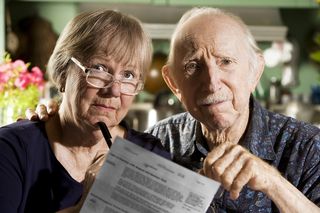 A well-planned estate is a wonderful legacy you can leave your heirs — instead of untangling a messy estate, they can follow concrete steps, allowing them to take care of business while mourning their loved one.
A well-planned estate is a wonderful legacy you can leave your heirs — instead of untangling a messy estate, they can follow concrete steps, allowing them to take care of business while mourning their loved one.
Document gathering can be overwhelming when it come to a loved one's passing. What about when you are no longer here? Will your loved ones be able to gather the appropriate information for your estate?
Newsday's recent article, titled "Estate planning: Putting affairs in order before death," lists the basic documents you will need prior to passing away.
Here they are:
LEGAL DOCUMENTS
- Will
- Letter of instruction
- Medical and statutory durable powers of attorney
- Trusts (These are not necessary, but some people have a revocable or irrevocable trust.)
- Directive to physicians
- Authorizations for release of protected health information
ACCOUNTS
- List of bank accounts
- List of usernames and passwords
- List of automatic pay accounts with name and contact information of each payee
- List of safe deposit boxes
- 401(k) accounts, IRAs, and Roth IRAs
- Pension documents and annuity contracts
- Brokerage account information
- A list of savings bonds and copies of actual bonds
- Life insurance policies (private and through employer)
- Long-term care insurance policies
OTHER ASSORTED DOCUMENTS
- Housing, land, and cemetery deeds
- Mortgage accounts
- Proof of loans made
- Vehicle titles
- Partnership and corporate operating agreements
- Previous three years' tax returns
- Marriage license
- Divorce papers
- Military discharge information
You should also create a list of contact information: contacts on accounts, names, current addresses and Social Security numbers of all people named in your legal documents. After completing all of this, you need to inform your executor where this information is stored. After death, things get complicated, because you have to shift between grieving and doing.
The original article also says to request numerous death certificates, as some institutions want originals, not copies, and it's easier to make the request from the funeral home, instead of after from the government agency. You should also keep track of all bills attributable to the estate, such as funeral and memorial arrangements, death notices, and other expenses. The estate can reimburse individuals for these costs.
When you are ready, meet with your estate planning attorney. He or she will advise you to gather documents and to get a date of death valuation for all accounts to which the deceased held title. If there is a surviving spouse, you should itemize what is in both the living and deceased spouse's names. Even if there are no estate taxes due, it may still be necessary to file an estate tax return.
Work with your estate planning attorney and ease the burden that all of this information gathering entails.
Reference: Newsday (October 29, 2014) "Estate planning: Putting affairs in order before death"
 Houston Estate Planning and Elder Law Attorney Blog
Houston Estate Planning and Elder Law Attorney Blog

